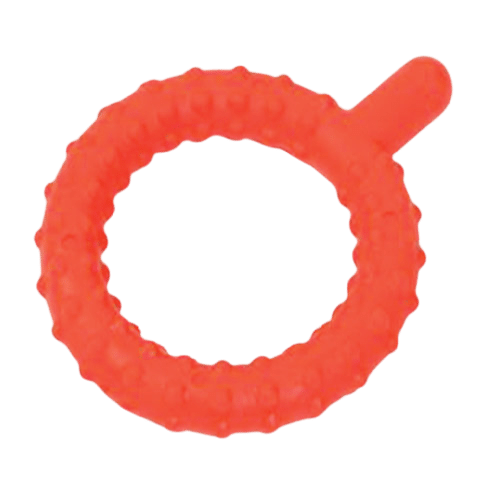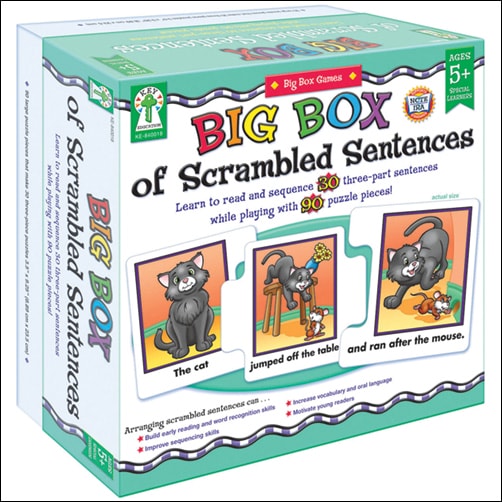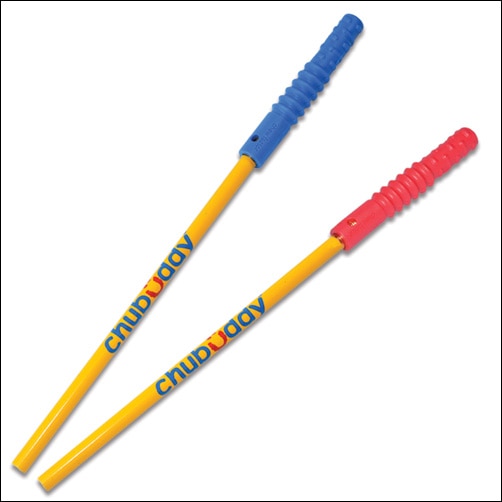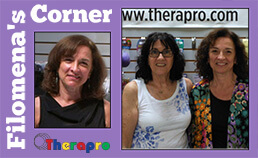Allyson Locke M.S., OTR/L
Porch, the home services platform, recently reached out to Therapro for help with their latest article, Expert Advice to Design the Ultimate Kids Playroom at Home. The question needing an answer was, what toys and products can help kids develop sensorial skills? Therapro’s team of experts had a lot to say on this topic! Read on to see what Therapro shared and be sure to check out the full article!
Sensorial skills encompass the five well known sensory systems tactile/touch, gustatory/taste, olfactory/smell, auditory/hearing, and visual/ sight as well as the lesser known vestibular and proprioceptive systems. With so many different systems the answer to this question is quite extensive.
Fidgets and chews are typically well known and well associated with sensory and sensorial development. Chews, as their name implies, are a category of items that are designed to be chewed. Chewing provides great proprioceptive input through the jaw area; this type of input can be very helpful for soothing but also great in the development of this system. Some chews have added textures (like bumps or ridges) that add a tactile component. Therapro offers a free handy guide, Choose Your Chew, to help make it easier to find the perfect chew. Fidgets are generally small objects that are held or manipulated. There are many fidget options available; depending on the fidget’s characteristics, they can help alert (wake up) or calm the sensory system. Therapro offers a free handy guide, Find Your Fidget, to make it easier to find the perfect fidget.
Games and activities that involve movement and body position sense are great for targeting the vestibular, tactile, and proprioceptive systems. Some examples of games include; Trunks, Spark Action Floor Game, and the Body Awareness Fun Deck. Movement based activities include playing with a parachute, riding a scooter board, completing sensory paths, doing yoga, and making obstacle courses with things like balance beams or stepping stones. Adding music enhances the movement experience by adding an auditory component. The resource Sensational Fun: Recreational Activities For Sensory Diets And Fun, includes over 100 activities for parents and teachers who are looking for some great sensory games using common objects found in the home and school (free sample activities are available!).
Games and activities that involve touching and feeling are great for targeting the tactile sense. Games and activities that have a specific tactile focus include; Tactile Search & Match, Feel ‘n Find, Sensory Collage Kit, Ruff’s House Teaching Tactile Set, and Gel Activity Pads. Playing with clay/ playdough is another great option and scented dough has the added benefit of bringing in the olfactory sense.
Multisensory environments are another option for immersing in the sensorial experience. Unlike traditional multisensory environments, the Luminea line of products offers an interactive component through its app or optional switches. With this, Luminea allows for true interaction between the user and components which is essential for sensorial development.
Play is a necessary component in the development of sensory skills. There are a vast variety of toys and products available to enhance the development of play. In choosing the most appropriate toy or activity considering a child’s interest, developmental level, and skill areas you wish to target are key!





